When it comes to food, you really can have too much of a good thing. These foods can be healthy, but only when you don't overdo it.
12 Healthy Foods You Should Eat Only in Moderation

There’s no better surprise than finding out that one of your favorite foods is as healthy as it is delicious. However, some of the most healthy foods are good only in moderation and can actually be unhealthy when eaten in excess (hello, decadent chocolate desserts).
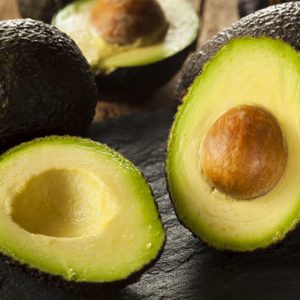
Avocado
Are you addicted to avocado recipes? There’s been a huge increase in avocado sales in the past few years, so you aren’t alone. Avocados are a rich source of healthy monounsaturated fats, which help to improve hair, skin and nail health and to lower cholesterol. However, consuming too many fats of any kind is never a good idea, and many Americans are unaware of avocado’s surprisingly high calorie count, about 250 per fruit.

Dark Chocolate
Dark chocolate is a sweet and indulgent treat that turns out to be good for your health. Filled with antioxidants and heart-healthy components, dark chocolate is proved to help lower the risk of heart disease over time. Make sure to be discerning when choosing a bar, because chocolates on supermarket shelves are filled with sugar and calories.
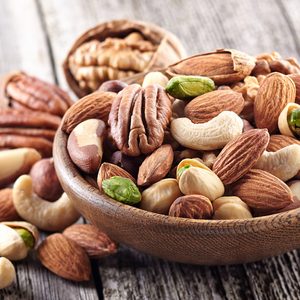
Nuts
Nuts are an extraordinary source of healthy fats, which can be beneficial for maintaining a healthy heart. Despite the benefits, nuts are 80 percent fat and high in calories. Adding a few handfuls to your daily diet to replace unhealthy fats is ideal, like a sprinkle over healthy main dish salads, but eating too many can add unnecessary calories and be detrimental to your diet.
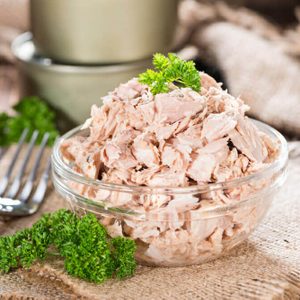
Canned Tuna
Canned tuna is a convenient and tasty addition to a healthy diet. High in protein and heart-healthy omega-3 fatty acids, this fish can be eaten by itself or easily added to sandwiches and salads for a healthy lunch. (Make sure you choose the healthiest salad dressing.) However, when eaten in excess it can account for high levels of mercury, which is particularly hazardous for pregnant women because of the health risks it poses to the unborn baby.

Peanut Butter
Although peanut butter is a healthy source of fats and helps create a feeling of satiation, it is also high in calories and can be high in sugar. The creamy spread is packed with powerful vitamins and minerals but should be eaten in moderation. Look for a variety without added sugar. Find out if your favorite brand made our list of the best chunky peanut butters.
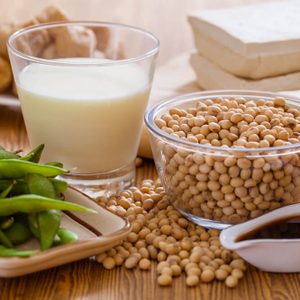
Soy
Soy is one of the most controversial health foods on supermarket shelves. Long thought of as a healthy alternative to meat and a favorite ingredient in smoothies, soy is high in protein and beneficial for people trying to eat a vegetarian diet. However, eating too much soy can interfere with healthy hormones and can cause disruptions in the body. Women who have an increased risk of breast cancer or other hormone-sensitive conditions should confer with their physicians before making soy a regular part of their diet.

Cheese
Cheese (along with most dairy products) is a good source of calcium and protein, which can promote healthy bone development and heart strength. However, eating cheese piled high onto a pizza or melted into a cheesy potluck appetizer is detrimental to your health and actually cancels out any health benefits. Make sure to eat cheese in moderation, and select varieties that are lower in sodium and fat.

Red Meat
Red meat is a delicious source of protein that can help to build healthy bones and muscle. However, some studies say that eating too much red meat, particularly cuts high in saturated fat, can lead to cardiovascular disease, cancer and an increased risk of mortality. For best results, eat red meat in moderation, and limit your intake to one or two days per week.

Chicken
Chicken is often thought of as the dieter’s meat, used to make low-calorie dinners. It’s low in saturated fat and it provides a healthy source of proteins, vitamins and minerals, all of which is beneficial for those of us trying to cut calories. However, America is the home of factory-farmed chickens, which are often pumped with antibiotics that can be dangerous to humans. Consider looking for brands or local farmers that minimize the use of antibiotics.

Frozen Diet Meals
Frozen diet meals are a convenient solution to healthy eating on the go or when you don’t have time to make a heart-healthy supper at home. However, most frozen packaged meals are high in sodium and low in calories. The low calorie count leaves us feeling hungry and unsatiated, which fails to promote a long-lasting and healthy lifestyle change.
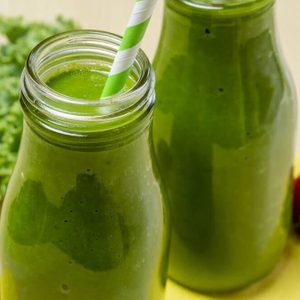
Bottled Green Juices
All-natural green juices are a healthy way to get the daily doses of fruit and vegetables that most of us forget about. However, most bottled green juices are extraordinarily high in sugar, which can reverse any of the health benefits that natural versions promise. Be discerning when selecting a juice, and make sure to keep an eye on the amount of sugar in each bottle.

Red Wine
Who doesn’t love kicking back after a long day with a glass of red wine? The best part, this boozy beverage can help to lower cholesterol and protect your heart. However, alcohol in any form can be unhealthy. When consumed in excess, red wine can lead to abuse and health problems, reversing any health benefits that might be present in moderate consumption.
